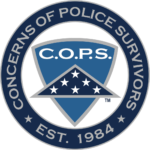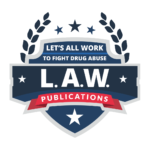
Article
2024 | Fall
Writing Reports for Conviction
Part 2 of 3
Daphne Tarver, Donna Fraser, Tiffany Griffin
Article
2024 | Fall
Writing Reports for Conviction
Part 2 of 3

Daphne Tarver, Donna Fraser, Tiffany Griffin
The first installment of this series discussed the importance of preparing good investigative reports, the impact of the report, and the variety of ways each report is critiqued. The purpose of this installment is to provide a pathway for law enforcement leaders and prosecutors to work together to identify issues with investigative report narratives and improve them. As previously noted, the criminal justice system is adversarial by its very nature. However, that does not mean individuals within the system cannot collaborate to adjust processes and improve their overall effectiveness. In the end, this initiative will lead to enhancing prosecutions, improving conviction rates, holding offenders accountable, and making communities safer.
"The police report by far is the most important piece of evidence in every criminal case."
Leaders in each part of the criminal justice system work diligently everyday to prioritize the use of limited resources to achieve their mission. For example, police leaders schedule personnel according to the workload and use technology to streamline operations. Similarly, district attorney and solicitor offices have a limited number of staff to handle all the criminal cases from every agency in their circuit. They simply do not have the time to carry each case to trial. This requires they focus on the most serious cases and those with sufficient evidence to move forward. As illustrated below, these processes take various forms to include, diversion, probation, or suspended sentences. In in many cases, plea agreements are offered for a lesser offense. In others, the cases are dismissed.
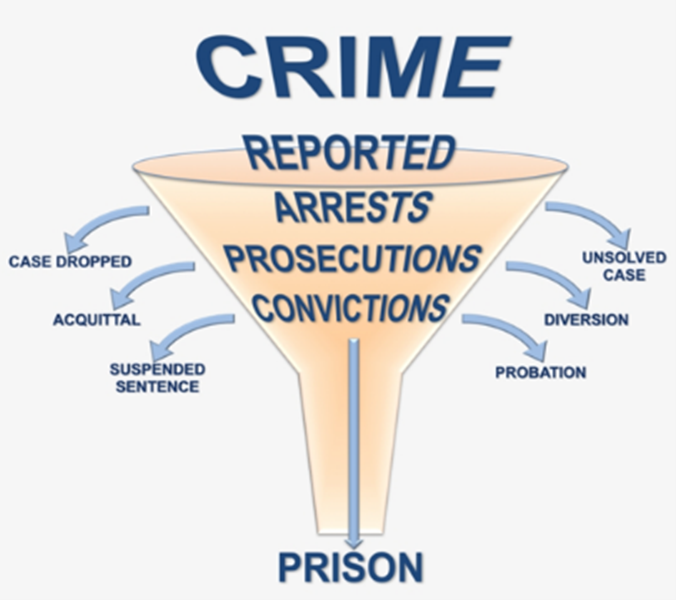
"Statements without numbers are just opinions."
Division of Power
Law enforcement agencies function under the administrative branch of government while prosecutors and the courts function under the judicial branch. This division of powers often leads individuals to function in organizational silos. When leaders in each of these branches implement operational practices, there is a tendency for them to focus on their internal operations without considering or coordinating with the other parts of the system to determine how proposed practices will impact their operations.
When officers are creating reports, they are focused on documenting the event and moving to the next call for service. Yet the information provided in the reports is critical to prosecuting the individual for their criminal offenses. When law enforcement and prosecutors do not coordinate their respective responsibilities, it is harder to hold defendants accountable for their violations of the law.
Problem Identification
Ignoring an issue is not an acceptable response. As agency heads agree to work on issues with police reports, the first step is to identify the issues that interfere with obtaining convictions. In some instances, cases are dismissed because they do not articulate the elements of the crime. Other times, officers document probable cause for the arrest but do not articulate their observations and actions. Some officers may collect evidence such as video recordings, fingerprints, and DNA evidence, but do not include it in the report. The victim is noted in the incident report, but other witnesses who were present were not documented. Verbal and written statements are obtained from victims, suspects, and witnesses, but are not summarized in the narrative. When officers take these actions but do not record them, investigators must follow-up with the officer to determine if the actions were or were not taken. When reports do not adequately articulate evidence beyond a reasonable doubt, prosecutors’ investigators must conduct additional investigation. In some instances, the case is dismissed.
Once the problems are identified, it is easier to articulate the goals. For example:
- Officers make arrests based upon their probable cause to believe the individual committed the crime they were accused.
- Officers document their observations, actions taken, and the evidence collected, in such a manner that it demonstrates the individual committed the offense beyond a reasonable doubt.
- Witnesses who were present are listed and the information they provided is summarized. Also, oral and written statements are documented.
- Sufficient evidence and information are recorded in detail.
Organizational Change
Addressing the issues regarding police reports will require changes in operations. When leaders affect changes in an organization, it is common to experience resistance. There are a variety of issues that contribute to this resistance. First, the changes are ‘threatening to a comfortable routine.’ Translated, ‘this is the way we have always done it.’ Making change suggests ‘the old way of working was inadequate.’ Officers may experience concerns of the increased workload. Some may feel ‘exploited,’ while others may fear they cannot perform to the newly established standard. To address this, leaders should engage officers in developing solutions. Explain the need for the changes, including statistics on dismissals and other pleas that were forced because of the quality of the investigative narratives. In addition, officer need to be provided training and support to transition to the new standards. [More information on this will be in the next installation.] Finally, engage officers in developing the solutions.[1]
To successfully make organization-wide improvements, changes start at the top. Where organizational leaders focus their attention (time, directives, follow-up reviews) determines where the resources (personnel, financial support) are focused and what gets done. So, once the concerns are articulated, one of the first steps is for leaders from law enforcement and prosecutor offices to come together to openly discuss the issues and collectively agree to resolve the issues.
Information Collection and Analysis
Representatives from each organization must work together to identify, measure, and evaluate issues. What are the problems? How large are the problems? How often do the various scenarios occur? What are the root causes? To accomplish this, an objective review of the law enforcement and prosecutors’ records must be completed to identify common patterns.
Data needs to be collected on the types of offenses as well as the different levels within the organization (i.e. officer, shift, precinct, division, entire agency). As part of this assessment, it is important for agencies to reach beyond their arrest statistics and focus on convictions. This will enable leaders to better identify where they need to focus their attention. When reviewing officers’ cases by the types of offenses, are there more dismissals for specific crimes (i.e. burglary, shoplifting, domestic assaults)? What are the differences between individual officers? For example, two officers make 100 arrests. The first officer has 98 convictions and the other has five. Why is this occurring? What needs to be done to address this issue? Without this information and open communications between law enforcement agencies and prosecutors, the issue will never be recognized and adequately addressed.
To successfully accomplish this, police departments need access to the prosecutors’ or clerks of court database to review case status and dispositions. Providing access to these systems also enables departments to track adjudications of cases and streamline the process for obtaining court orders to destroy or return property and evidence.
Second, is the issue occurring across all agencies or do they vary between departments? For example, are officers documenting sufficient information in their reports? This may range from not articulating the elements of the crime to not including personal observations, evidence collected, statements, etc. In other cases, one department includes video evidence with their report and another department never collects or documents the recordings. In some cases, one precinct or shift may do an excellent job of documenting information, and another does not. This feedback allows leaders to tailor their corrective actions.
During the COVID-19 pandemic, the court system was closed. As a result, there continues to be huge backlog in most circuits. Because of this backlog, there is often a long time between the officer making the arrest and the case coming before the court. Officers do not remember the case and the report does not have sufficient detail to remind the officer of the actions they took.
Other times, officers’ behavior interferes with cases moving forward. For example, some officers do not return calls to prosecutors or their investigators to answer questions regarding their cases. Several circuits have reported officers refusing to appear to testify. Some officers are of the mindset that defendants “should not fight the charges” and they “should not have to come to court.’ Presumption of innocence is a constitutional right that attaches to every arrest and must be expected by every officer. Officers’ understanding of how cooperation with prosecutors protects the rights we all are protected by and entitled to is key. What communications regarding this behavior is being exchanged between the prosecutor and the department? When communications are adversarial between officers and prosecutors, the defendant and defense attorneys can and often do capitalize on this. An arrest without a conviction should be a concern for everyone.
Working Group
Once the information has been collected, create a working group of “all-stars” to develop strategies to improve the reporting system. This group should include a variety of representatives to include:
First Line Supervisors – Sergeants are the linchpin for ensuring department policies are properly employed by patrol officers providing direct services to the community. They have intimate insights into the challenges officers must cope with every day. One of these responsibilities is to ensure each officer prepares their incident reports in accordance with established standards.
Report Writing Champions – Who are the best report writers in patrol and detectives? These persons are role models for the rest of the department. They can give guidance of how they create outstanding reports.
Alienated Followers – This group of officers were once engaged, critical thinking individuals who were viewed as being exemplary employees. While the reasons vary, they became frustrated and disengaged. These individuals still care about their job but are frustrated and voice what many view as a negative perspective. While some leaders tend to ignore alienated followers, they do so at their own peril. These officers’ insights are more likely to be direct and candid regarding the underlying causes, problems with reporting writing, strategies that do not work, and insight in how to improve the processes.
Field Training Officers – FTO’s teach new officers how to apply the skills learned in classroom in the real world. They can describe common issues recruits experience when preparing reports. This information can provide insight for instructors to improve their curriculum.
Instructors – Academy and department instructors can discuss what is currently taught and use information from this project to improve the basic and in-service training curriculum.
Prosecutors – Attorneys can definitively list and describe the importance of evidence to be documented in the report. They can also describe the challenges faced in the various court proceedings. More importantly, they can explain “why” specific information and items should be included in the report. This is critical because when officers understand the why, they are more likely to engage in the solution.
District Attorney/Solicitor Investigators – These investigators are charged with following up on officers’ reports to clarify issues and collect information needed by the prosecutor. Most prosecutor investigators have decades of investigative experience and are frequently engaged in major cases in multiple jurisdictions. This enables them to provide insights into effective strategies that could be used in the courtroom. They can and often do partner with agencies on major crimes to streamline preparing search and arrest warrant affidavits.
They can also collaborate on active case investigations to advise on best practice legal procedures and help identify investigative leads. Prosecution investigators can testify in court as expert witnesses to educate jurors on various subject matters. These investigators also assist prosecutors prepare for and present cases at trial. These experts can utilize a variety of techniques to identify the issues with police reports and creating solutions. For example, a SWOT analysis of police reports enables them to identify the strengths, weaknesses, opportunities, and threats impacting the prosecution of cases. Once these are identified, teams can brainstorm how to capitalize on the strengths, overcome weaknesses, take advantage of opportunities, and mitigate threats.
The final installment of this series will identify problems frequently found in an investigative narrative and processes to create comprehensive systems.
1. Howard T. Prince, John f. Halstead, and Larry M. Hesser, Leadership in Police Organizations, Vol. 2, Lesson 29, “Leading Change”, International Association of Chiefs of Police, pp. 600 – 602, (2002).
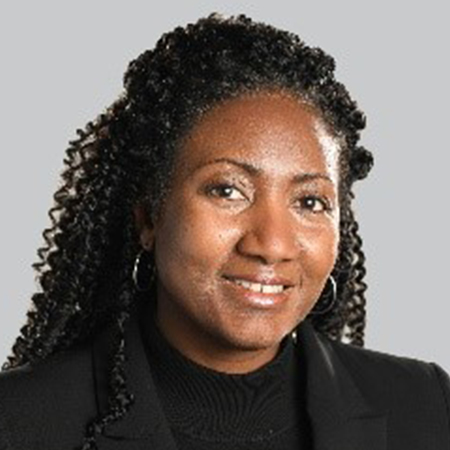
Daphne Tarver
Daphne Tarver is Chief of the Investigations Division of the Gwinnett Solicitor-General’s Office. With 28 years of law enforcement experience, Chief Tarver holds a criminal justice technical certificate from Miami Dade College and holds numerous advanced certifications as well as serves on multiple boards and task forces.
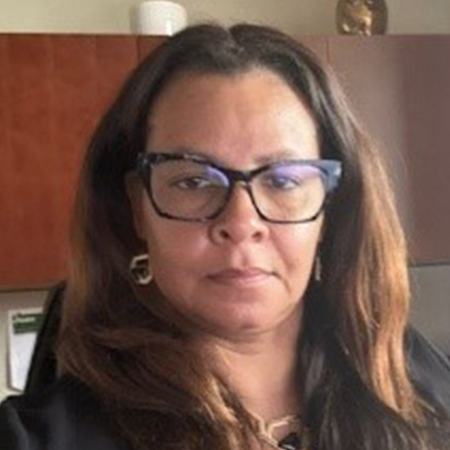
Donna Fraser
Donna Fraser is the Deputy Chief Investigator for the Dekalb County Solicitor General’s Office with 30 years of experience with the State of Georgia and South Carolina, specializing in internal affairs and criminal investigations. She holds a Bachelor of Arts in Criminal Justice from St. Leo University.
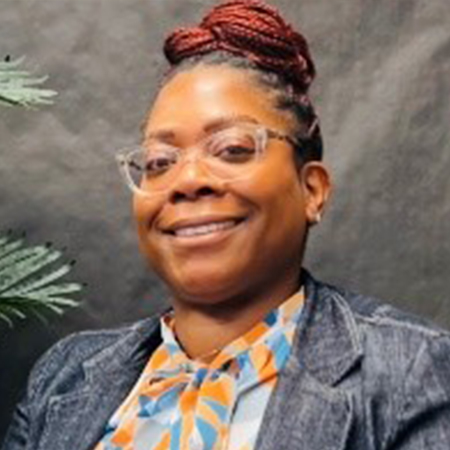
Tiffany Griffin
Tiffany Griffin is the Chief Investigator for the DeKalb County Solicitor General’s Office. She has 23 years of law enforcement experience and holds a Bachelor of Arts in Criminal Justice and a Minor in Psychology, specializing in Criminalistics and a Master of Business Administration from Clayton State University.







